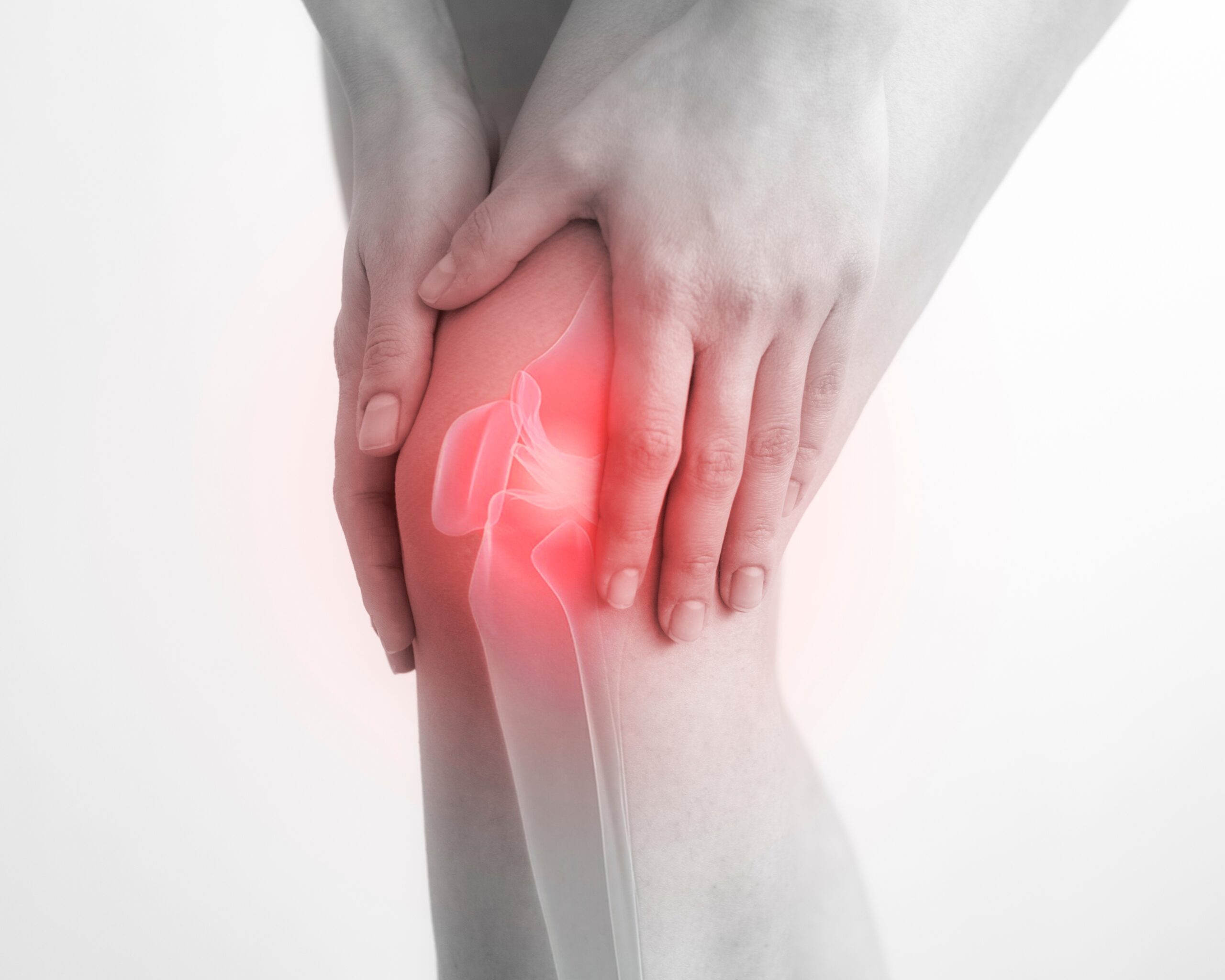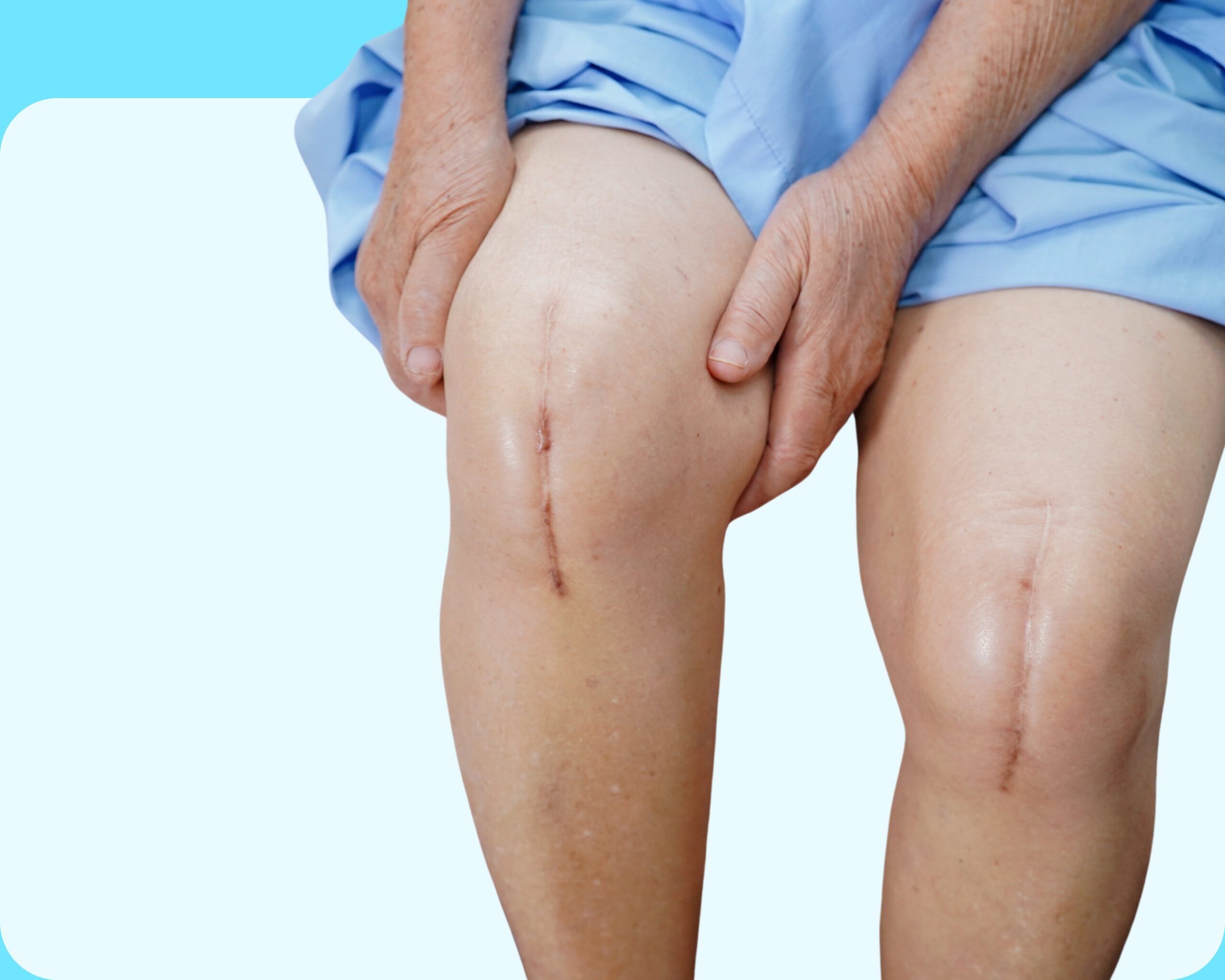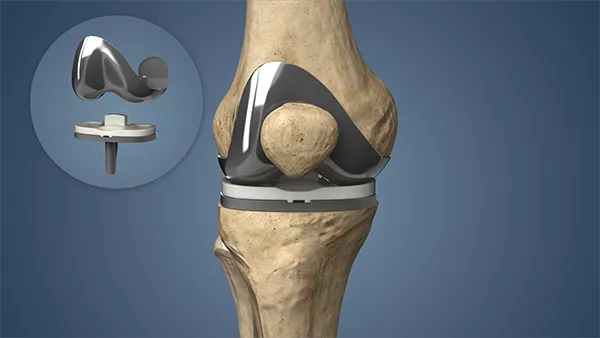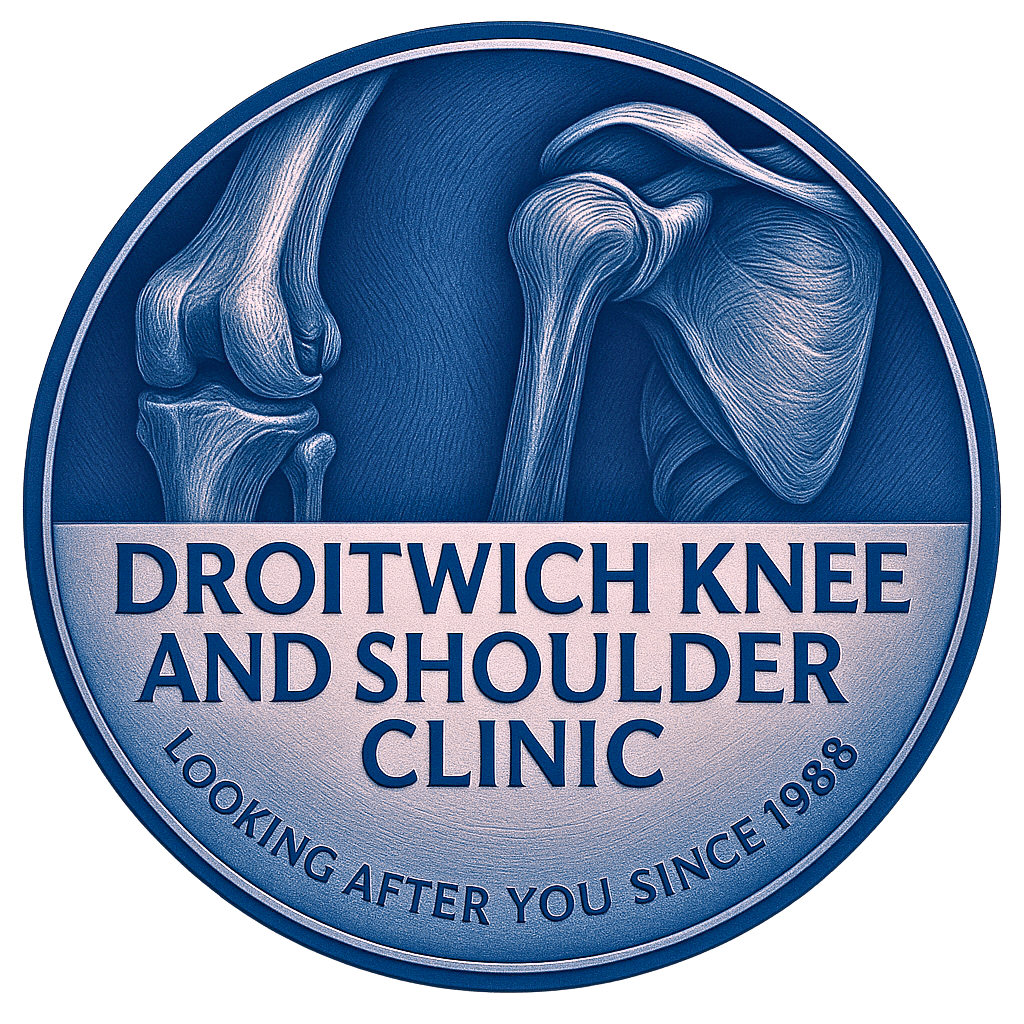Knee Replacement in Birmingham
Restore your movement and live pain-free with expert knee replacement in Birmingham. We offer partial, total, and robotic procedures tailored for you.


Advanced Knee Replacement Surgery & Expert Care
Living with chronic knee pain can severely affect your mobility, independence, and quality of life. At our specialist clinic, we offer Birmingham knee replacement procedures with world-class expertise.
Our consultant orthopaedic surgeons provide partial and total knee replacement tailored to each patient, helping restore natural movement, reduce pain, and get you back to the activities you enjoy.

What Is Knee Replacement Surgery?
Knee replacement (arthroplasty) is a surgical procedure where a damaged or worn-out knee joint is replaced with an artificial implant made of metal, ceramic, or high-grade plastic. The procedure is recommended when arthritis, injury, or degeneration causes persistent pain and stiffness that do not respond to non-surgical treatments.
We offer:
- Partial Knee Replacement (Unicompartmental) – where only the damaged part of the knee is replaced.
- Total Knee Replacement (TKR) – where the entire knee joint is resurfaced.
- Robotic Knee Replacement Birmingham – advanced precision techniques to improve outcomes
Why Choose Us for Knee Replacement Birmingham?
- Consultant-led, patient-focused care
- Specialist experience in partial, total, and robotic knee replacement
- Enhanced recovery protocols for faster rehabilitation
- On-site physiotherapy and personalised aftercare
- State-of-the-art surgical technology and implants
Knee Replacement Recovery in Birmingham
Recovery from knee replacement varies depending on the individual and type of surgery performed. Typically:
- Hospital stay: 1–3 days (sometimes same-day discharge with minimally invasive surgery)
- Walking with aids: Within 24–48 hours
- Driving after knee replacement: Usually safe after 6–8 weeks
- Return to normal activities: 3–6 months depending on progress
- Knee replacement recovery time for elderly: May take slightly longer due to healing differences
We also provide tailored post-knee replacement physiotherapy, including safe knee replacement therapy exercises and advice on exercises to avoid after surgery.
Cost of Knee Replacement in Birmingham
We are transparent about costs and provide competitive packages for both NHS and private knee replacement surgery.
- Private knee replacement cost in Birmingham varies depending on whether you require a partial or total replacement, the type of implant, and hospital stay.
- Self-pay packages are available, and we also work with major insurance providers.
For a full breakdown of costs, please contact our patient care team.
Benefits of Knee Replacement
- Long-lasting pain relief
- Improved mobility and flexibility
- Correction of deformities such as bow legs or knock knees
- Increased independence in daily life
- High success rate with long-term durability
Common Concerns About Knee Replacement
Knee replacement scar and healing:
Scarring is minimal with modern surgical approaches, and healing times are shorter with less invasive techniques.
Disadvantages of knee replacement surgery:
While the majority of patients experience excellent results, risks include infection, stiffness, implant loosening, and blood clots. Our expert team minimises these risks with advanced surgical techniques and enhanced recovery programmes.
Botox Injections for Shoulder Pain
Persistent pain, instability, or clicking should be assessed promptly by a specialist.
FAQs
On average, a modern knee replacement can last 15–20 years or longer, depending on activity level and implant type.
Most patients can walk with support within a few days and return to normal daily activities within 6–12 weeks. Full recovery may take 6–12 months.
Some patients find kneeling uncomfortable, though many can kneel carefully after full recovery.
Avoid high-impact activities such as running or jumping. Low-impact exercises like swimming, cycling, and walking are encouraged.
Private packages typically start from £12,000–£15,000, depending on the complexity and hospital stay.
Alternatives include physiotherapy, weight management, steroid injections, hyaluronic acid gel injections, and arthroscopy. These may help temporarily but are less effective in advanced arthritis.
Sleep on your back with a pillow under your leg or on your side with a pillow between your knees to reduce strain.
Physiotherapy, medications, and gentle exercises can help. Persistent nerve pain should be reviewed by your surgeon.
The procedure usually lasts 60–90 minutes, depending on complexity

